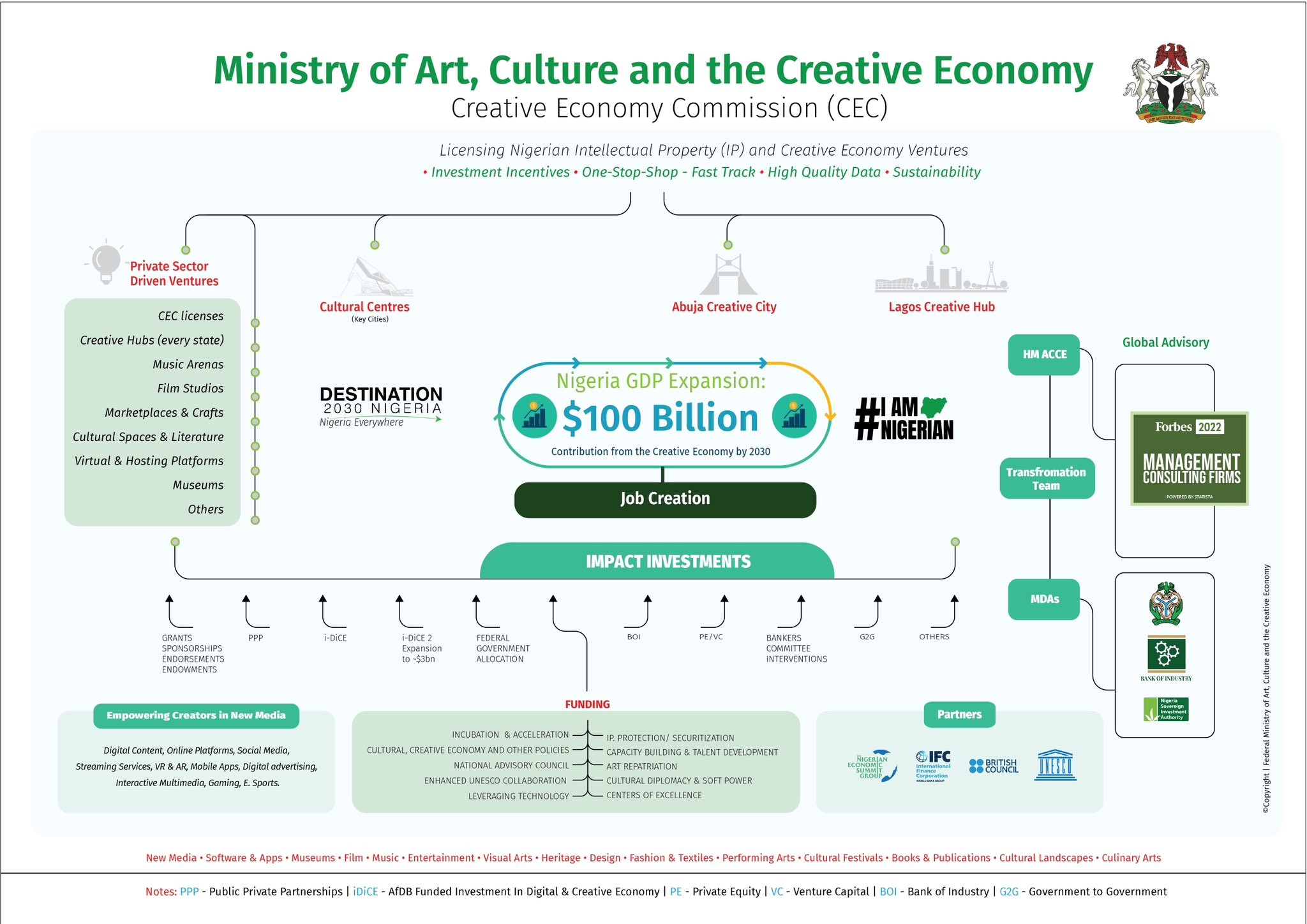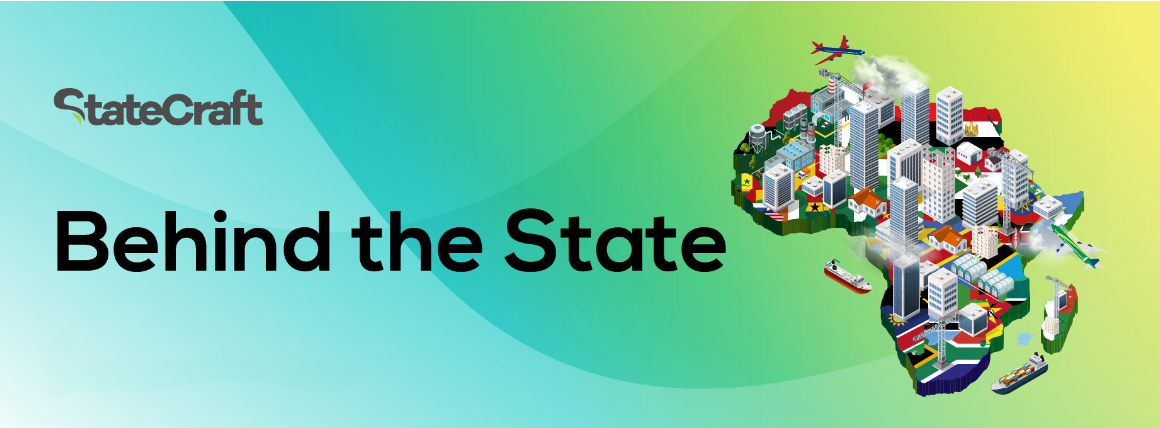Economic Renaissance and Soft Power Synergy: Nurturing Nigeria’s Global Influence through Creative Economy
As the world moves towards a sustainable and eco-friendly future, Nigeria is leaving behind its oil dependency to explore alternative energy sources. This shift promises an exciting chapter in Nigeria’s economic rejuvenation.
In September, we embarked on a journey to explore new avenues for Nigeria’s economic renewal. Our first stop was the Ministry of Marine and Blue Economy, delving into its potential as an emerging economic powerhouse. Today, we continue our exploration by examining the Federal Ministry of Art, Culture, and Creative Economy (FMACCE) and the pivotal role of Soft Power in its resurgence.
Dynamic Creative Economy: A $100 Billion Projection
The creative sector in Nigeria, as categorized by FMACCE, is primed for extraordinary growth. By 2030, it is anticipated to be valued at $100 billion. The Creative Economy Commission (CEC) grouped fifteen vibrant sub-sectors: New Media, Software & App, Museums, Films, Music, Entertainment, Visual Arts, Heritage, Design, Fashion & Textiles, Performing Arts, Cultural Festivals, Book & Publications, Cultural Landscapes, and Culinary Arts.

Economic Impact and Job Generation
A recent report by Jobberman spotlights the creative economy’s central role in Nigeria. Not only does it significantly contribute to our workforce, but it is also poised to become the nation’s second-largest employer. Most excitingly, it holds the potential to generate2.7 million jobs by 2025 and infuse a remarkable 5 trillion Naira into Nigeria’s GDP.
The Power of FMACCE Beyond Economics
However, FMACCE is not just about economics. It can harness soft resources such as the allure of Afrobeat culture, iconic Nollywood figures, tourist attractions, and a welcoming environment for study abroad programs to shape long-term international perceptions of Nigeria.
Borrowing from South Korea’s Success
Drawing inspiration from South Korea’s remarkable journey, we see how their cultural industry, known as the Korean Wave or Hallyu, transformed their international image. South Korea, once synonymous with cars and smartphones, is now captivating the world with its entertainment and culture.
Netflix’s “Squid Game” received major Emmys, and K-pop has found a prominent place at the American Music Awards. When President Trump visited South Korea, he was welcomed by the presidential team and K-pop group EXO. BTS, a global sensation, performed for South Korean President Moon Jae-in and addressed the United Nations, showcasing their country’s cultural prowess.
Nigeria’s Soft Power Strategy: The Pillars
To effectively leverage FMACCE as a soft power tool, Nigeria must adopt three key pillars:
- Government-Led Soft-Power Policies: The government must create and support policies that nurture the growth of creative sectors. These policies should include incentives for creative entrepreneurs, funding for cultural initiatives, and measures to protect Nigeria’s cultural heritage.
- Economic Strategy: A strong economic foundation is crucial for the sustainability and growth of FMACCE sub-sectors. It involves fostering innovation, attracting investments, and promoting international trade in creative fields.
- Convergence of Experience, Creativity, and Digital Technology: In the digital age, Nigeria can use technology to amplify its cultural and creative offerings, making them accessible worldwide. This convergence merges Nigeria’s rich cultural heritage with digital innovation, crafting a narrative that resonates internationally.
In conclusion, by implementing these pillars, Nigeria can cultivate an environment where FMACCE thrives, contributing to the nation’s cultural expression, economic growth, and global influence. This strategic approach positions Nigeria on the world stage as a hub of creativity, culture, and economic vitality.


